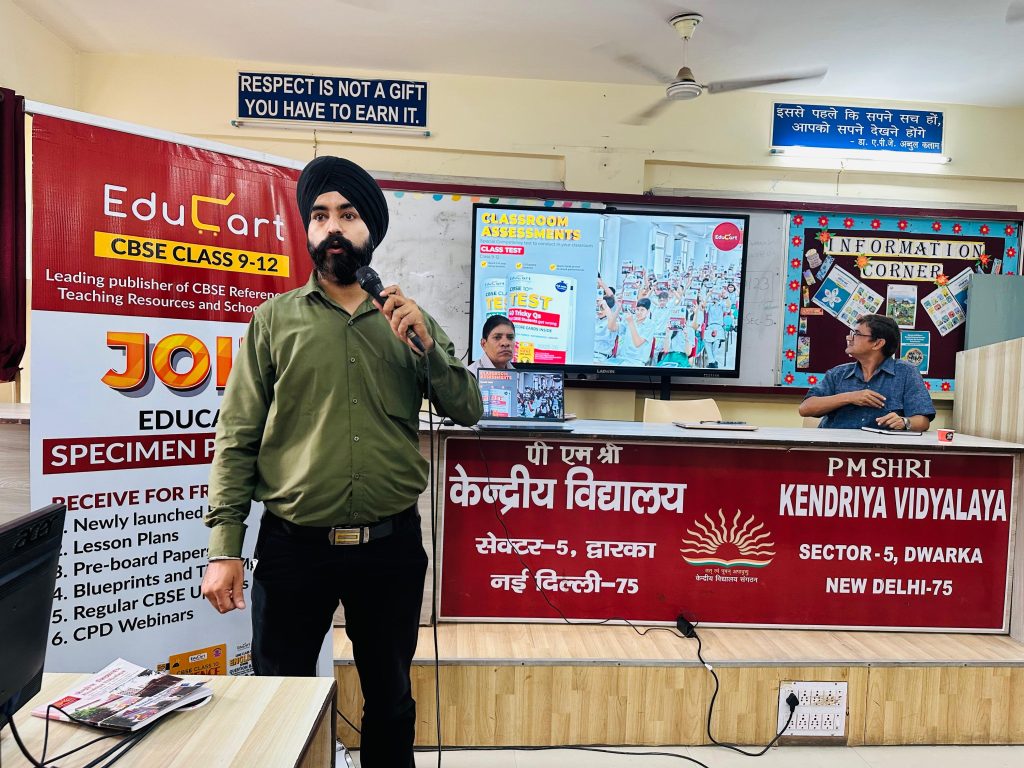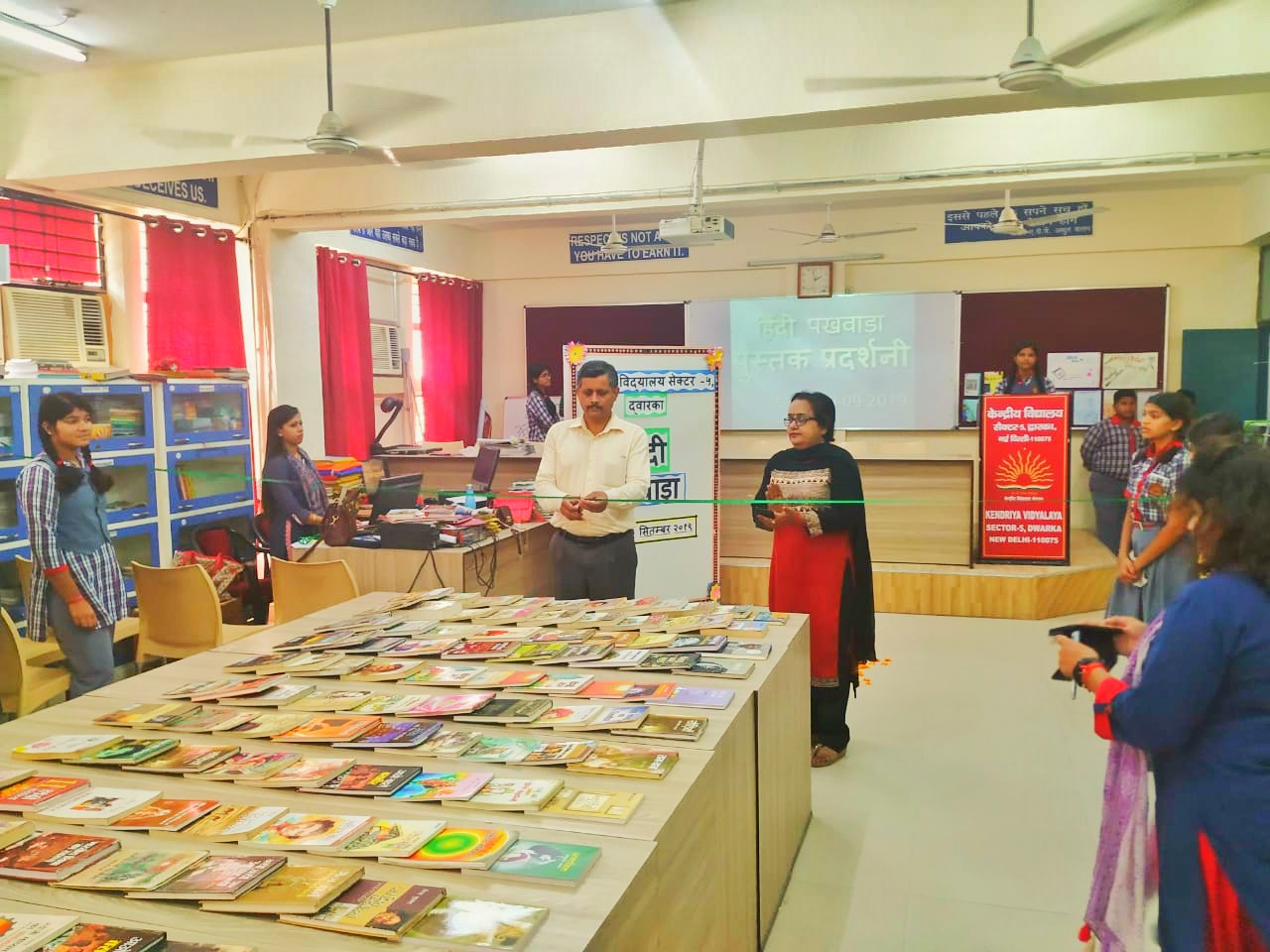The AI in Education workshop at Kendriya Vidyalaya Sector 5, Dwarka held on August 30, 2025, led by Ms. Diviya Mehra (CBSE Resource Person), was attended by over 45 educators eager to understand how artificial intelligence is reshaping education.
Ms. Mehra began the session by introducing AI as a transformative force, explaining how machine learning and large language models can assist teachers in day-to-day tasks. Participants explored popular AI platforms such as ChatGPT, Gemini, Claude, Copilot, and Perplexity, gaining first-hand exposure to their classroom potential.
Hands-on activities formed the core of the workshop. Using the PARTS framework, teachers practiced prompt engineering to design targeted prompts for lesson planning, activity creation, and assessments. Educators experimented with tools like Gamma AI, Wordwall, and Napkin AI to generate presentations, quizzes, and rubrics tailored to student needs.
The session also highlighted the importance of AI ethics and safety. Ms. Mehra underscored the need for accuracy checks, awareness of biases, data privacy, and ensuring AI complements rather than replaces human thinking. Teachers reflected on how AI could relieve them of routine tasks, freeing up time for deeper student engagement and fostering critical thinking in classrooms.
The workshop concluded with teachers appreciating the balance of technical knowledge, practical application, and ethical guidance. They expressed enthusiasm for integrating AI into their teaching practices, recognizing it as a tool to enhance, not replace their creativity and instructional impact.
Key Highlights of the Workshop
- Introduction to AI in Education: Ms. Mehra explained how AI can transform teaching and learning, making classrooms more dynamic and resource-efficient.
- Understanding AI Tools: Teachers explored Machine Learning and LLMs such as ChatGPT, Gemini, Claude, Copilot, and Perplexity.
- Prompt Engineering Practice: Participants engaged in hands-on exercises using the PARTS framework (Persona, Aim, Recipients, Theme, Structure) to design effective classroom prompts.
- Practical Applications: Educators created lesson plans, rubrics, quizzes, and presentations using AI tools like ChatGPT, Gemini, Gamma AI, Wordwall, and Napkin AI.
- Ethics and Safety: The session emphasized responsible AI use – covering accuracy verification, bias awareness, data privacy, and balancing AI with human judgment.
- Teacher Empowerment: AI was positioned as a supportive assistant, enabling teachers to reduce routine work and focus on creativity, critical thinking, and student engagement.







